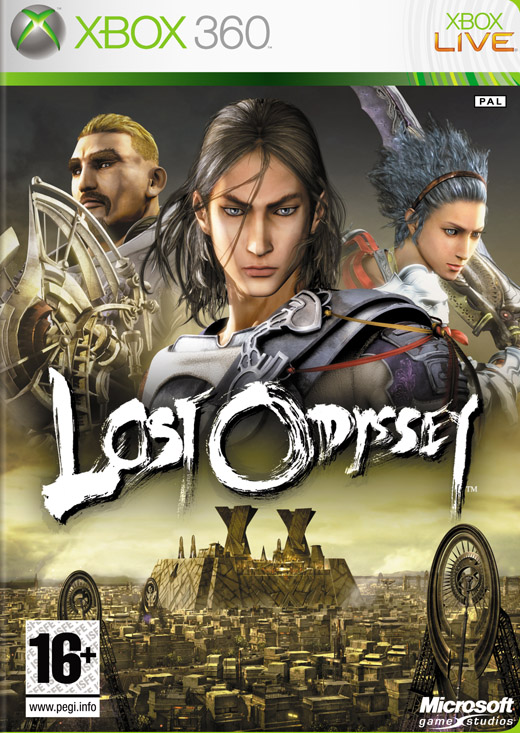And once again I am forced to abandon a JRPG.
Surprise!
Goodbye, Lost Odyssey, you were kind of fun while you lasted.

I have a rather sordid history with this genre, I will admit. Countless JRPGs have passed through my consoles and only a scant few have ever had the privilege of showing me their credits sequences.
Something about them keeps drawing me back in time and time again, yet invariably before the credits have rolled I am repulsed by some element or another of outdated gameplay or frustrating game design.
I am inherently drawn to the genre due to its high production values and strong focus on story, two things I value in my game playing experience, yet time and time again I run into games that have graphics that are the best in the league and gameplay that seems to be a mile behind the average.

Just once in this genre, I would like to find a game that is as fun to play it as it is to watch. Is that really so much to ask?
Well, yes, apparently.
I have found examples that come close. Grandia II, for example. This is one of the rare instances, perhaps the only instance, of a JRPG I have actually managed to finish. Yet even here I am not met with a game that matches great gameplay with great story.

Grandia is a game that is opposite of the norm. It is a game that gets the gameplay right and the story wrong. Most games in this genre draw me in with the epic story and then forget to keep me interested by saddling it with repetitive gameplay. Grandia II, on the other hand, just barely scraped by with an average story, yet provides one of the most compelling combat systems in any RPG I have played.
Quite honestly, this is the way I prefer it. After all, what use is a fantastic story if you were too bored to tears to ever see it through to the end?

Basically the entire Final Fantasy series stands as a testament to this. I have bought or played damn near every game in this series, but I have yet to finish a single one of them.
Why?
Because they are consistently saddled with outdated save systems, frequently boring combat, lots of required grinding, tedious pacing, and frustrating battles that have you seeing the game over screen way too many times.
What it comes down to is that, let's face it, it takes a hell of a game to justify lasting 40, 60, or even upwards of 80 hours. Remarkably few games manage this and the reasons are many. Mostly, they just don't have the proper story pacing, interesting enough characters, or the gameplay variety to keep you interested. Fighting the same monsters in the same battle system for 80 hours just isn't compelling enough incentive to keep going for me.

These problems are amplified when they are mixed in with combat design that seems to often favor bashing you over the head with difficulty instead of keeping your progress consistent. In a game this long, it should go without saying that halting your progress is decidedly a bad thing. If playing Uncharted 2 and God of War III recently has taught me anything, it's that gaming experiences that are heavily reliant on forward progress and captivating story to maintain interest should not be saddled with overly difficult gameplay. This only leads to a level of frustration higher than in your average game.
I want to be clear here. I'm not saying that JRPGs are terrible. I'm just saying that, to me, they are far too repetitive and frustrating to be worth the time investment.
As many times as I keep finding this out the hard way, however, I still keep buying more of them. I guess I just keep searching for that mysterious game that manages to feel modern and polished and worthy of the long attention span it demands.
It's a search that has so far produced no results. And yet, even still, I can feel the itch growing inside me to play Final Fantasy XIII, even though I know what likely lies in store for me.
Perhaps the problem is in my own blasted stubbornness and not the JRPG genre.
Food for thought.
